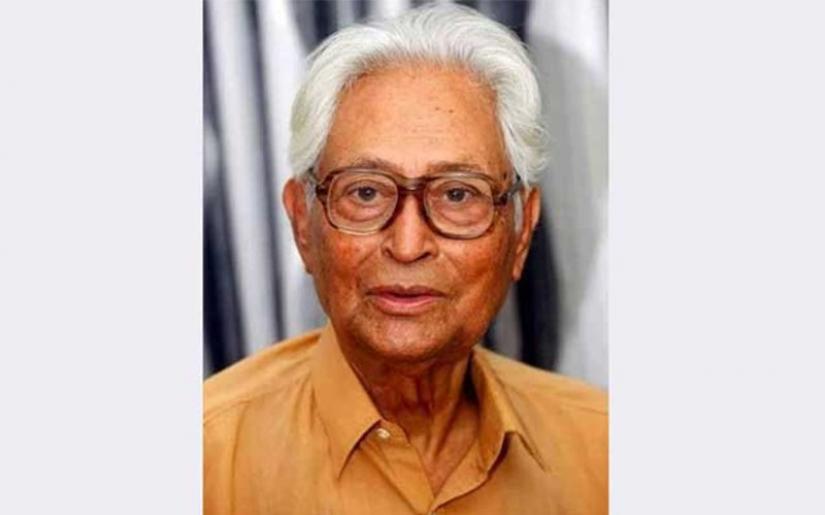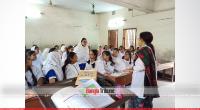 National Awami Party (NAP) President Professor Muzaffar Ahmed has died at the age of 97 while undergoing treatment at a Dhaka hospital.
National Awami Party (NAP) President Professor Muzaffar Ahmed has died at the age of 97 while undergoing treatment at a Dhaka hospital.
He breathed his last at the Intensive Care Unit of Apollo Hospital on Friday (Aug 23) evening, the Prime Minister’s Deputy Press Secretary Ashraful Alam Khokon told Bangla Tribune.
Ahmed was the last surviving member of the advisory council of Bangladesh's government in exile during the war of independence in 1971.
The nonagenarian politician had been suffering from old-age related complications for a long time.
The prime minister expressed her condolences over his death saying “the nation will forever remember with respect his contribution to progressive politics.”
BNP acting chief Tarique Rahman and Secretary General Mirza Fakhrul Islam Alamgir also expressed their condolences.
Born on Apr 14, 1922 at Elahabad village in Cumilla’s Debidwar, Muzaffar Ahmed held a graduate and post-graduate degree in economics from University of Dhaka. He also held a UNESCO diploma.
He left home on Mar 25, 1971 when fires were shot at his father’s home in Dhaka’s Kakrail. He then crossed the border into India and joined other Bangladeshi politicians in Agartala.
Muzaffar was a member of the war time goverbment and led the formation of a special guerilla forces comprising of NAP, Communist Party and Chhatra Union during the 1971 War of Liberation.
He took part in the United Nations General Assembly which played a significant role in building world opinion in favour of Bangladesh’s independence.
A leftist politician, whose career spanned over eight decades, Muzaffar refused to accept the highest civilian honour Swadhinata Padak in 2015.
He also refused a position in the Cabinet during the Sheikh Mujibur Rahman-led administration after the war.
He had said that he did politics for the people and the country without expecting any recognition.
In his long career as a politician, Muzaffar was a forefront leader in the Language Movement, the Libration War and anti- autocrat movements.
He went on to teach economics in Chittagong Government College, Dhaka College and Dhaka University later on.
He left his job at Dhaka University two years later to actively participate in politics. He won a seat in Cumilla’s Debidwar in the general elections that year as a Jukta Front candidate in 1954.
By the end of the 60s, when the communist movement across the world split into pro-China and pro-Soviet Union forces Mawlana Abdul Hamid Khan Bhasani’s NAP got divided and Prof Mozzaffar became president of the East Pakistan unit of the pro-Moscow faction.
He was summoned to attend the Round-Table Conference in Rawalpindi in 1969 by Ayub Khan as a leading political figure of former East Pakistan.
He was elected a member of the Parliament 1979 and he was also nominated as the NAP, CPB and other progressive forces’ candidate for the 1981 presidential election.
His party NAP joined the Awami League-led 14-party alliance and his wife Amina Ahmad was elected as a lawmaker from the reserved seats for women that year.
Muzaffar became less active in the field of politics during the early 2000s due to health issues.


